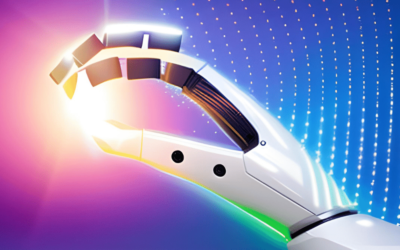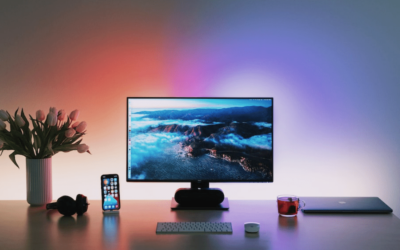Today’s Deals
[wpdts-date]
Like many others, you’re always on the lookout for a great deal on a laptop. It’s hard to keep up with the latest models and features, and even harder to find a good price. But don’t worry, we’ve got you covered. Here are your daily laptop deals, so you can stay up-to-date without breaking the bank.
Laptop Purchasing Guide: Key Laptop Considerations
Laptops are a big purchase, so do your research.
Size: 13″, 15″, or 17″ Screen?
When deciding on a screen size for your laptop, there are a few things to keep in mind. The first is how much space you have available to store the laptop when it’s not in use. A 17″ screen will obviously be larger and require more space than a 13″ screen.
The second thing to consider is how you’ll be using the laptop. If you’re going to be doing a lot of work with large spreadsheets or graphics-heavy programs, then a larger screen will give you more room to work and make it easier on your eyes. However, if you’re just using the laptop for general web browsing and checking email, then a smaller screen might suffice.
Finally, keep in mind that a larger screen usually means a heavier laptop, so if you plan on carrying it around with you often, make sure you can handle the extra weight.
Weight: How Much Can You Carry?
When it comes to laptops, weight is often an important consideration. After all, you don’t want to be lugging around a heavy machine everywhere you go. But just how much weight can you realistically carry?
Here are a couple of things to keep in mind when considering the weight of a laptop:
• How often will you be carrying it? If you’re only going to be taking your laptop with you on occasion, then weight may not be as big of a factor. However, if you’re someone who is constantly on the go, then a lighter machine will be easier to carry around.
• What is the size of the laptop? Generally speaking, the larger the laptop, the heavier it will be.
Battery Life: How Long Can It Run?
Another issue that you will want to consider when buying a laptop is battery life. If you’re going to be using your laptop on the go, then having a laptop with a good battery life may well be important.
When it comes to laptops, battery life is an important consideration. After all, there’s nothing worse than being in the middle of a project and having your laptop die on you.
How long a laptop’s battery will last depends on a number of factors, including the type of processor, the size and resolution of the screen, and how many programs are running.
If you are planning to use your laptop for travel or working remotely, then you will want to make sure that it has a good battery life. Some laptops can last for up to 8 hours or more on a single charge, while others may only last for 3-4 hours.
If you know that you will need to use your laptop for long periods of time without access to a power outlet, then you should look for a model with a longer battery life. You may have to sacrifice some other features, such as processor speed or storage space, in order to get a longer battery life. But if you know that you need it, then it is worth the trade-off.
Operating system: Windows, macOS, or ChromeOS?
When it comes to purchasing a laptop, one of the first things you need to decide is which operating system you want. Windows and macOS are the two most popular choices, but there is also ChromeOS, which is becoming increasingly popular. So, which should you choose?
Windows has been around for a long time and is the most popular operating system in the world. It’s stable and relatively easy to use, and there are a lot of great programs available for it. However, it can be prone to viruses and other malware, so you need to be careful when using it.
macOS is the operating system that comes on all Apple computers. It’s very user-friendly and stable, but it can be more expensive than a Windows laptop. There are also fewer programs available for macOS than for Windows.
If you’re debating between going with Windows or Mac, you can check out more details on the differences in our here – Mac vs PC.
ChromeOS is the newest operating system available. It’s extremely user-friendly, and it is usually updated automatically and quickly. However, there aren’t as many programs available for ChromeOS than there are for other operating systems, such as Windows or macOS.
Processor: Intel or AMD?
When it comes to purchasing a laptop, one of the most important factors to consider is the processor. There are two main types of processors on the market today: Intel and AMD. So, which one is the best option for you?
Well, that depends on a few things. If you’re looking for the best possible performance, then Intel is usually the way to go. Their processors are typically faster and more powerful than AMD’s. However, they also tend to be more expensive.
If you’re on a budget, then AMD might be a better option for you. Their processors aren’t typically as fast as Intel’s, but they’re still plenty powerful for most tasks. Plus, they tend to be much cheaper than Intel processors.
So, which one should you choose? Ultimately, it depends on your needs and your budget.
Storage: Hard Drive or Solid State Drive?
When it comes to choosing a storage device for your laptop, you have two main options: a hard drive or a solid state drive. Hard drives are the traditional option and tend to be cheaper, but they’re also slower and more prone to damage. Solid state drives are newer and more expensive, but they’re much faster and more durable.
So which one should you choose? It really depends on your needs. If you’re looking for a budget-friendly option and don’t need blazing fast speeds, then a hard drive is can work. But if you want the best performance possible, solid state drives are the way to go. We highly recommend solid state drives over traditional hard drives.
RAM: 4GB, 8GB, or 16GB?
When it comes to purchasing a laptop, one of the main things to look for is the amount of RAM that it has. In general, the more RAM that a laptop has, the faster it will be. If you are looking for a laptop that is fast and can handle multiple tasks at once, then you should look for a laptop with at least 8GB of RAM. However, if you are only looking for a laptop for basic tasks such as browsing the internet and checking email, then 4GB of RAM will be sufficient.
Graphics: Integrated or Dedicated?
When it comes to graphics, there are two main types of GPUs: integrated and dedicated. Integrated GPUs are built into the CPU and share memory with the system, while dedicated GPUs have their own memory and offer better performance.
So, which is better? It depends on your needs. If you’re a casual user who just wants to browse the web and do some light gaming, an integrated GPU will be fine. However, if you’re a power user who does a lot of video editing or gaming, you’ll need a dedicated GPU.
Another thing to consider is whether you want a laptop with a discrete GPU or one that uses hybrid graphics. Discrete GPUs offer the best performance, but they also require more power and generate more heat, so they’re not ideal for use in laptops.
When it comes to purchasing a laptop, there are many things to consider. We have outlined a handful of the most important factors to keep in mind. We hope these tips have been helpful in your decision-making process. Thank you for reading and good luck on your next laptop purchase!



